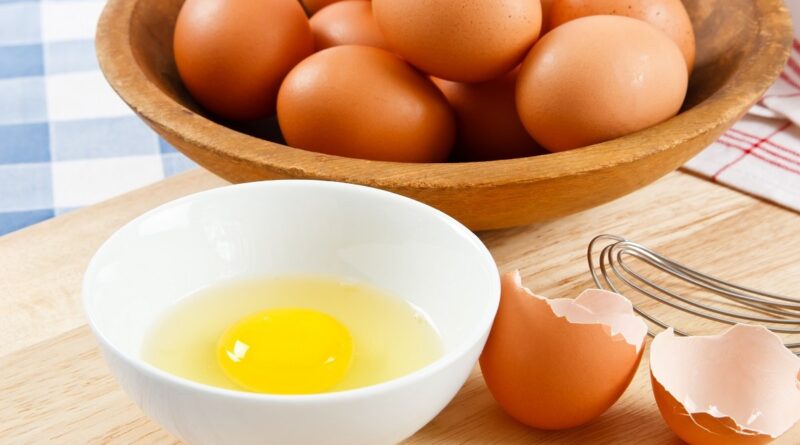Can cats eat eggs?
Content of the article
Chicken and quail eggs are a valuable and nutritious product not only for humans, but also for pets. They contain protein, vitamins and amino acids, and veterinarians have no doubts whether cats can eat eggs. When feeding with natural food, it is recommended to include them in the diet of animals along with meat and fermented milk products.
Composition and benefits of eggs.
The main place in the diet of pets is given to animal proteins. Therefore, the basis of the cat's diet is meat, and eggs are an additional source of protein, and it is easily digestible. Eggs are considered the only natural product that has a balanced combination of nutrients, amino acids, trace elements and vitamins.
Proteins are necessary for the normal development of the body: from them, cats get vital amino acids, in addition, protein is needed to strengthen the immune system and is a source of energy: it can be "deposited" in the body in the form of fat.
The need for proteins during the cat's life changes, depending on the age and state of health. Average protein and fat needs for cats:
- during growth and development: proteins — 30%, fats — 20%;
- adult animals: proteins - 25-30%, fats - 15-20%.
Importantly! Pregnant and lactating cats, as well as sick and weakened animals need additional proteins, and for pets with kidney pathologies, on the contrary, their consumption should be reduced.
Eggs contain amino acids necessary for the body of domestic animals. For normal life and activity, each cat needs 22 different amino acids, and only 12 of them can be synthesized in its body, the rest must come there in ready form. Vital amino acids include taurine, lysine, methionine, tryptophan and others.
In the body of a cat, unlike a dog, taurine is not synthesized, and it is this amino acid that is very valuable for furry pets, because it:
- contributes to the normal functioning of the nervous and vascular system, the heart;
- supports immunity, reduces the risk of infectious diseases and the development of complications after them;
- contributes to the breakdown of fats, participates in formation bile;
- supports reproductive functions, with taurine deficiency, cats give birth to weak kittens with pathologies;
- controls the level of sugar in the blood, with a lack of taurine diabetes most often develops;
- provides visual acuity, prevents the development of retinal atrophy;
- has a beneficial effect on digestion, improves food digestion, normalizes intestinal functions;
- improves wool quality.
Lysine participates in almost all physiological processes in the pet's body, supports and normalizes the work of all systems and organs. Amino acid deficiency leads to health problems: anemia, growth and development retardation in kittens, reduced immunity, risk of developing infectious pathologies, impaired vision, osteoporosis, and others. With a deficiency of lysine in the body, animals become lethargic and tire quickly.
Methionine promotes the breakdown of fats, helps the liver to cope with loads, reduces the risk of developing liver pathologies, in particular, toxic hepatitis, cirrhosis. Amino acid is a source of sulfur that forms keratin. This protein ensures the health of the cat's skin and fur, its claws. The lack of methionine leads to a decrease in immunity, worsening of blood parameters (anemia develops), impaired liver and kidney functions.
Importantly! The origin of the protein affects the ease of assimilation and the ease of breaking it down into amino acids. Egg protein has the highest biological value, compared to other proteins.
In addition to proteins, eggs contain minerals - calcium, phosphorus, iron, magnesium and vitamins A, B9, B12, D, E. The rich composition ensures the health of the heart and blood vessels, the strength of bones and joints, and a stable hormonal background in the body.
Which eggs are better for a cat?
Quail eggs differ from chicken eggs in their easier digestibility and rich composition of nutrients, but both types of eggs can cause an allergic reaction and individual intolerance. It is recommended to give quail eggs to pregnant cats, as this will provide the animal's body with the necessary vitamins.
To whom are eggs contraindicated?
Some cats have an individual intolerance to egg whites and eggs cause allergic reactions in them. Allergy symptoms include itching, swelling, rashes around the ears and on the face. Possible vomiting, intestinal disorder. In these cases, chicken eggs should not be given to the cat. Quails are also allergic, so the ban also applies to them.
Raw eggs (especially protein) should not be fed to pregnant and lactating cats, extremely carefully you should add eggs to the diet of animals suffering from liver and kidney pathologies, chronic diseases of the heart and blood vessels. If possible, it is better to exclude them from the diet.
Importantly! Chicken and quail egg yolks are strictly prohibited for animals with urolithiasis.
Care should be taken when giving industrially produced eggs to cats - some poultry farms may give chickens antibiotics to protect them from infectious diseases. With the egg, antibacterial additives can enter the animal's body, where they can reduce the functions of the immune system and cause malfunctions of internal organs.
Importantly! Before adjusting the diet, it is recommended to consult a veterinarian. Before adding eggs to your pet's food, it is advisable to pass tests on the content of vitamins in the body.
How to give a cat eggs?
No matter how rich the nutritional composition of eggs is, you cannot feed them to a cat without control. And they are generally contraindicated for small kittens under the age of three months.
For growing pets, it is enough to add an egg to their food once a week, adult cats can eat up to two or three eggs a week, but not completely: 1/3 of an egg in 1 serving. Shells are a valuable addition to food — they contain calcium carbonate and other minerals. Before adding to food, the shell should be ground into a powder and added to feed. But at urolithiasis the shell ban also remains.
Which eggs to give - raw or boiled?
Eggs for cats can be included in the diet only in boiled form: raw ones can contain Escherichia coli, which causes diseases of the digestive system and inflammation of the pancreas. In addition, in raw form, chicken eggs are very poorly absorbed by the cat's body, they remove some vitamins from the body, leading to vitamin deficiency. And there can be dangerous bacteria on the shell or inside it.
For the same reason, you cannot give animals both a soft egg (soft-boiled) and eggs in a bag. They should be boiled for at least 4-5 minutes, only then the high temperature kills salmonellae, the causative agents of a dangerous disease, salmonellosis.
Importantly! Sometimes it is allowed to add raw egg yolk to cheese or meat, but only from fresh domestic eggs. You can prepare a steam omelet for your furry pet - a steamed beaten egg with warm milk added to it. Just don't salt the omelet - salt is contraindicated for cats.
Not all cats like eggs - the product has no smell, and cats often simply refuse to taste a new dish. For kittens closer to the age of six months, you can add a chopped egg to minced meat, cheese for the first time, and later ask the pet to evaluate the taste of a separate dish. If the cat constantly refuses such food, it is better to exclude eggs from its diet, replacing the valuable source of protein, vitamins and amino acids with other food or vitamin supplements.
What will 2025 bring to pet owners?
⚠️ We suggest that you read and take note of all the conclusions on our portal at your discretion. Do not self-medicate! In our articles, we collect the latest scientific data and the opinions of authoritative experts in the field of health. But remember: only a doctor can diagnose and prescribe treatment.
The Portal is intended for users over the age of 13. Some materials may not be suitable for children under the age of 16. We do not collect personal data from children under the age of 13 without parental consent.We have a small request. We strive to create quality content that helps care for pets, and we make it available for free to everyone because we believe that everyone deserves accurate and useful information.
Advertising revenue only covers a small portion of our costs, and we want to continue to provide content without the need to increase advertising. If you found our materials useful, please support us. It only takes a minute, but your support will help us reduce our dependence on advertising and create even more useful articles. Thank you!



